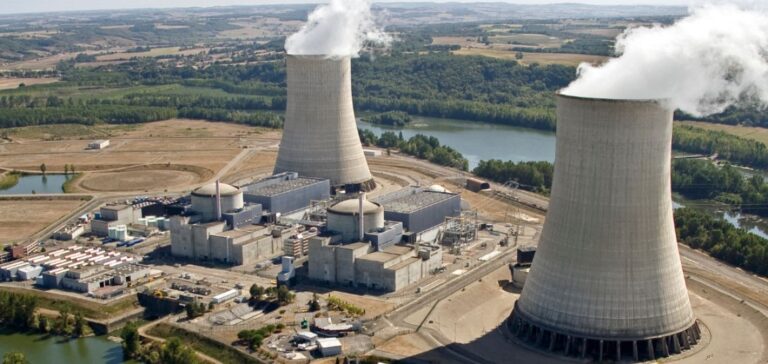The Golfech nuclear power plant in southern France is adjusting its output in response to abnormally high temperatures in the Garonne river.
EDF (Électricité de France) is reducing output by one gigawatt (GW), impacting the plant’s capacity until August 10.
This reduction, although significant, generally represents less than 1% of the plant’s annual output.
On July 31, the temperature of the Garonne exceeded the 28°C limit, leading to this restriction.
EDF regularly adapts production according to water temperatures to avoid negative environmental impacts.
This decision marks the first summer heat-related restriction of the year, following years of disruptions due to prolonged maintenance.
Future prospects and challenges
LSEG (London Stock Exchange Group) is anticipating a drop in temperatures, which could allow a rapid return to normal production.
However, a new heat wave early next week could create new challenges.
According to LSEG analyst Ulrich Weber, energy demand is set to fall from Friday onwards, with a drop expected in France as early as Monday. French nuclear power plants, which have a total capacity of 44.7 GW, see around 73% of this capacity online.
At Golfech, the Golfech 1 reactor is undergoing a capacity reduction, while the Golfech 2 reactor is offline for maintenance.
EDF is also imposing load restrictions to save fuel, illustrating the challenges of production management and environmental sustainability.
The current situation at Golfech highlights the importance of proactively managing energy production to maintain stability despite extreme weather conditions.
The plant’s ability to adapt quickly is crucial to guaranteeing a stable supply of electricity.






















